August 13 stands as one of history’s most eventful days, witnessing the rise and fall of empires, groundbreaking discoveries, and moments that shaped our modern world across centuries of human achievement.

Politics and Government Events on August 13
1905 – Norwegians Vote to End Union with Sweden
Norwegian citizens overwhelmingly voted to dissolve their forced union with Sweden in a historic referendum. The vote marked a decisive step toward complete Norwegian independence after centuries of foreign rule.
Popular support for independence reached nearly universal levels across all regions of Norway. This peaceful democratic process set a precedent for how nations could separate through civil means rather than warfare.
1960 – Central African Republic Declares Independence from France
The Central African Republic officially gained independence from French colonial rule on this date. President David Dacko led the new nation as it transitioned from French territory to sovereign state.
The independence ceremony in Bangui marked the end of decades of colonial administration in the region. French officials formally transferred governmental authority to the newly elected Central African leadership.
1961 – Berlin Wall Construction Begins
East German authorities closed the border between East and West Berlin, beginning construction of the infamous Berlin Wall. The day became known as “Barbed Wire Sunday” as families were suddenly separated by barbed wire barriers.
Construction crews worked through the night to erect temporary barriers that would eventually become a permanent concrete wall. The barrier would divide the city for nearly three decades, becoming the ultimate symbol of Cold War division.
1968 – Assassination Attempt on Greek Dictator

Alexandros Panagoulis attempted to assassinate Greek military dictator Colonel Georgios Papadopoulos in Varkiza, Athens. The failed bombing attack represented one of the most daring acts of resistance against the military junta.
Panagoulis was immediately captured and subjected to brutal torture for his defiance of the regime. His courage in facing the dictatorship made him a symbol of resistance to oppression in Greece.
2008 – Russian Forces Occupy Georgian City
Russian military units occupied the Georgian city of Gori during the Russo-Georgian War. The occupation demonstrated Russia’s military superiority and marked a significant escalation in the conflict.
Georgian forces had previously withdrawn from the strategic city, leaving it vulnerable to Russian advance. The occupation of Gori brought Russian forces dangerously close to the Georgian capital of Tbilisi.
2020 – Israel-UAE Relations Formally Established
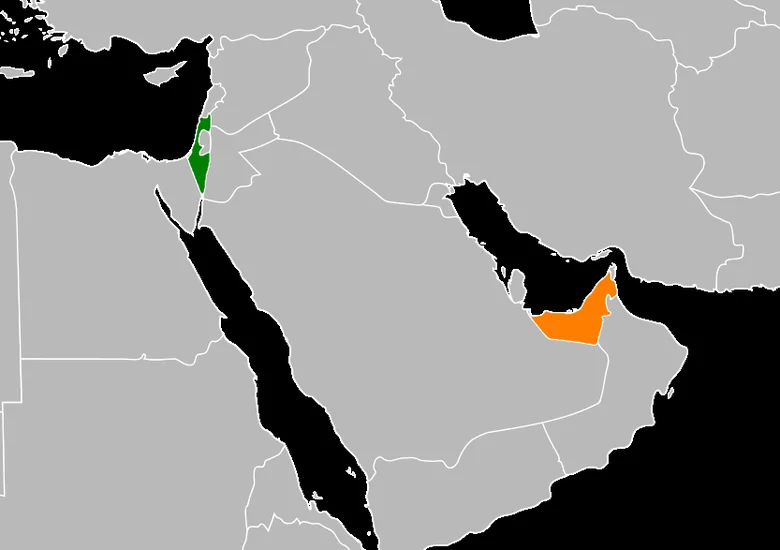
Israel and the United Arab Emirates formally established diplomatic relations in a historic breakthrough. The Abraham Accords represented the first Arab-Israeli peace agreement in over two decades.
The agreement normalized relations between the two nations and opened new avenues for trade and cooperation. This diplomatic milestone reshaped Middle Eastern geopolitics and encouraged other Arab nations to consider similar arrangements.
Military and Naval History on August 13
1918 – Women Enlist in Marine Corps
Women enlisted in the United States Marine Corps for the first time in military history. Opha May Johnson became the first woman to officially join the Marines, breaking centuries of male-only tradition.
Johnson’s enlistment opened new opportunities for women in military service during World War I. Her historic enrollment paved the way for thousands of women who would serve their country in uniform.
1920 – Battle of Warsaw Begins
The decisive Battle of Warsaw commenced between Polish and Soviet forces during the Polish-Soviet War. The battle would continue until August 25, ultimately resulting in a crushing defeat for the Red Army.
Polish forces, despite being outnumbered, implemented brilliant defensive strategies that halted the Soviet advance. The victory saved Poland from communist conquest and preserved its newly regained independence.
1937 – Battle of Shanghai Begins
The Battle of Shanghai commenced as Japanese forces launched a major offensive against Chinese positions. This battle marked a significant escalation in the Second Sino-Japanese War that had begun weeks earlier.
Chinese forces mounted fierce resistance against the Japanese invasion, leading to months of brutal urban warfare. The battle demonstrated Chinese determination to resist Japanese expansion despite overwhelming odds.
1942 – Manhattan Project Authorization

Major General Eugene Reybold authorized construction of facilities for the top-secret Manhattan Project. The authorization launched the massive American effort to develop atomic weapons during World War II.
The project would eventually employ over 130,000 workers across multiple secret sites throughout the United States. This decision fundamentally altered the course of the war and changed global military strategy forever.
1944 – German Troops Pillage Cretan Village
German forces began systematically pillaging and destroying the village of Anogeia in Crete. The brutal campaign would continue until September 5, representing one of the worst atrocities committed in occupied Greece.
The destruction of Anogeia served as collective punishment for the village’s support of Cretan resistance fighters. This war crime exemplified the brutal nature of Nazi occupation policies in the Mediterranean.
Science and Discovery Milestones on August 13
1913 – First UK Production of Stainless Steel
Harry Brearley successfully produced stainless steel for the first time in the United Kingdom. His breakthrough discovery revolutionized metallurgy and manufacturing industries worldwide.
Brearley’s innovation emerged from his research into developing better steel alloys for gun barrels. The corrosion-resistant properties of stainless steel would transform everything from kitchen utensils to architectural design.
1902 – Felix Wankel Born

German engineer Felix Wankel was born, destined to revolutionize automotive engine design. His childhood fascination with mechanical systems would lead to groundbreaking innovations in rotary engine technology.
Wankel would later develop the revolutionary rotary engine that bears his name today. His engineering genius provided automotive manufacturers with a compact, lightweight alternative to traditional piston engines.
1918 – Frederick Sanger Born

English biochemist Frederick Sanger entered the world, future Nobel Prize laureate and pioneering researcher. His early academic excellence in chemistry foreshadowed his later groundbreaking contributions to molecular biology.
Sanger would become the only person to win the Nobel Prize in Chemistry twice. His revolutionary work in protein and DNA sequencing laid the foundation for modern genetic research.
1912 – Salvador Luria Born

Italian-American microbiologist Salvador Luria was born, future Nobel Prize winner and bacterial genetics pioneer. His early interest in mathematics and physics would later inform his revolutionary biological research.
Luria’s groundbreaking work on bacterial mutations fundamentally changed understanding of genetic inheritance. His research provided crucial evidence for the random nature of genetic mutations in living organisms.
Cultural and Arts Events on August 13
1969 – Apollo 11 Astronauts Ticker-Tape Parade
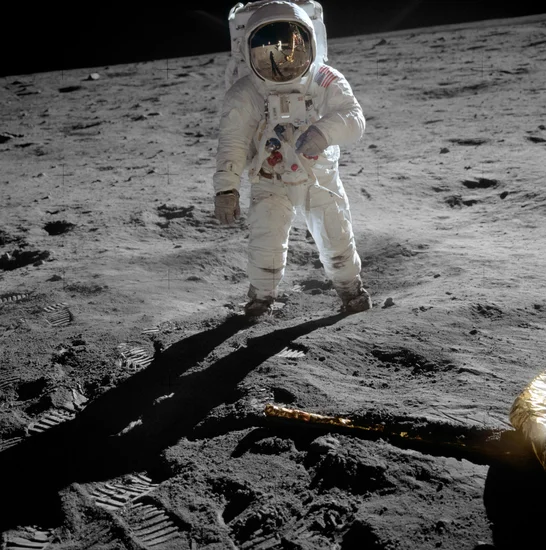
The Apollo 11 astronauts enjoyed a magnificent ticker-tape parade in New York City celebrating their historic moon landing. That evening, President Richard Nixon awarded them the Presidential Medal of Freedom at a state dinner.
Millions of New Yorkers lined the streets to celebrate the astronauts’ unprecedented achievement in space exploration. The parade represented America’s triumph in the Space Race and captured the nation’s pride in scientific achievement.
1954 – Pakistan’s National Anthem First Broadcast

Radio Pakistan broadcast the “Qaumī Tarāna”, Pakistan’s national anthem, for the first time. The historic broadcast marked an important milestone in the young nation’s cultural identity formation.
The anthem’s premiere reached millions of Pakistani citizens across the newly formed country. This cultural moment helped unite diverse populations under a shared national symbol and identity.
1919 – George Shearing Born

English jazz pianist George Shearing was born, destined to become one of the most influential musicians of his generation. Despite being born blind, his exceptional musical talent emerged early in childhood.
Shearing would later develop the distinctive “Shearing Sound” that influenced countless jazz musicians worldwide. His innovative piano techniques and compositions helped shape the evolution of modern jazz music.
1954 – Kathleen Battle Born

American operatic soprano Kathleen Battle was born, future international opera star and classical music icon. Her exceptional vocal abilities would make her one of the most celebrated singers of her generation.
Battle’s pristine coloratura soprano voice would grace the world’s most prestigious opera houses. Her performances at the Metropolitan Opera and other venues established her as a leading figure in classical music.
Religious and Social Events on August 13
1977 – National Front Clashes in London
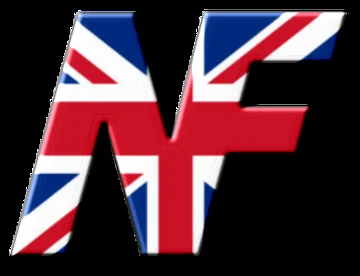
Members of the British National Front clashed violently with anti-fascist demonstrators in Lewisham, London. The confrontations resulted in 214 arrests and at least 111 injuries in one of Britain’s worst racial conflicts.
The violence highlighted growing tensions between far-right groups and anti-racism activists in 1970s Britain. Police struggled to maintain order as thousands of protesters from both sides converged in the streets.
1964 – Last Executions in United Kingdom
Peter Allen and Gwynne Evans were hanged for murder, becoming the last people executed in the United Kingdom. Their deaths marked the end of capital punishment in British criminal justice history.
The simultaneous executions occurred at different prisons as Britain moved toward abolishing the death penalty entirely. This historic moment represented a fundamental shift in British attitudes toward criminal justice and human rights.
1913 – Makarios III Born
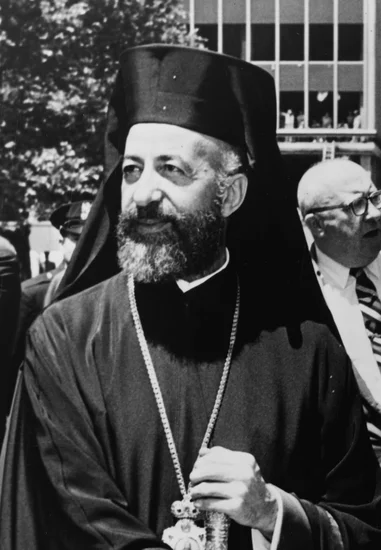
Greek Cypriot religious leader Makarios III was born, future Archbishop and first President of Cyprus. His early religious education would prepare him for leadership roles in both spiritual and political spheres.
Makarios would become a pivotal figure in Cyprus’s struggle for independence from British colonial rule. His dual role as religious leader and political figure made him one of the most influential Cypriots in history.
Business and Economic Events on August 13
1918 – BMW Established as Public Company
Bayerische Motoren Werke AG (BMW) was established as a public company in Germany. The company’s transformation from aircraft engine manufacturer to automotive corporation began during this pivotal period.
BMW’s incorporation marked the beginning of what would become one of the world’s most prestigious automotive brands. The company’s focus on precision engineering and quality would establish its reputation for luxury vehicles.
1972 – Kevin Plank Born

American businessman Kevin Plank was born, future founder of athletic apparel giant Under Armour. His entrepreneurial spirit and athletic background would drive him to revolutionize sports clothing technology.
Plank would later build Under Armour into a multi-billion dollar company competing with industry giants. His innovative moisture-wicking fabrics transformed athletic wear and challenged established sportswear manufacturers.
1950 – Janet Yellen Born

American economist Janet Yellen was born, future Federal Reserve Chair and Treasury Secretary. Her academic excellence in economics would prepare her for the highest levels of financial leadership.
Yellen would become the first woman to serve as Chair of the Federal Reserve Board. Her expertise in monetary policy and economic theory would guide America through multiple financial challenges.
Transportation and Infrastructure on August 13
1990 – Chinese Fishing Vessel Collision
A mainland Chinese fishing boat collided with a Taiwanese naval vessel during a repatriation operation, resulting in 21 deaths. The tragic incident occurred less than a month after a similar maritime disaster in the Taiwan Strait.
The collision highlighted dangerous tensions between mainland China and Taiwan over immigration and territorial waters. Both governments launched investigations into the circumstances surrounding the deadly maritime accident.
1977 – Aviaco Flight 118 Crashes

Aviaco Flight 118 crashed during approach to A Coruña Airport in Spain, killing all 85 passengers and crew plus one person on the ground. The devastating accident represented one of Spain’s worst aviation disasters.
Investigators determined that poor weather conditions and pilot error contributed to the tragic crash. The disaster led to improved safety protocols and better training procedures for Spanish commercial aviation.
1949 – Philippe Petit Born

French tightrope walker Philippe Petit was born, future daredevil famous for his high-wire performances between skyscrapers. His fearless approach to extreme stunts would captivate audiences worldwide.
Petit would later gain international fame for his illegal tightrope walk between the Twin Towers. His death-defying performance 1,350 feet above New York City became one of the most famous stunts in history.
Sports and Recreation on August 13
1912 – Ben Hogan Born

American golfer Ben Hogan was born, destined to become one of the greatest players in professional golf history. His dedication to perfecting his swing would revolutionize golf instruction and technique.
Hogan would win nine major championships despite a near-fatal car accident that interrupted his career. His methodical approach to the game and legendary work ethic inspired generations of professional golfers.
1970 – Alan Shearer Born

English footballer Alan Shearer was born, future England captain and Premier League legend. His exceptional goal-scoring ability would make him one of the most prolific strikers in football history.
Shearer would become the Premier League’s all-time leading scorer with 260 goals in 441 appearances. His powerful shooting and aerial ability made him a nightmare for defenders throughout his career.
1949 – Bobby Clarke Born

Canadian ice hockey player Bobby Clarke was born, future NHL Hall of Fame center and Philadelphia Flyers captain. His aggressive playing style and leadership qualities would define his legendary career.
Clarke would lead the Flyers to two Stanley Cup championships despite playing with Type 1 diabetes. His determination to excel despite physical challenges inspired countless athletes facing similar obstacles.
1975 – Shoaib Akhtar Born

Pakistani cricketer Shoaib Akhtar was born, future fast bowler known as the “Rawalpindi Express.” His exceptional speed would make him one of the fastest bowlers in cricket history.
Akhtar would become the first bowler to break the 100 mph barrier in international cricket. His express pace and aggressive bowling style terrorized batsmen throughout his international career.
Notable Births on August 13
1926 – Fidel Castro Born
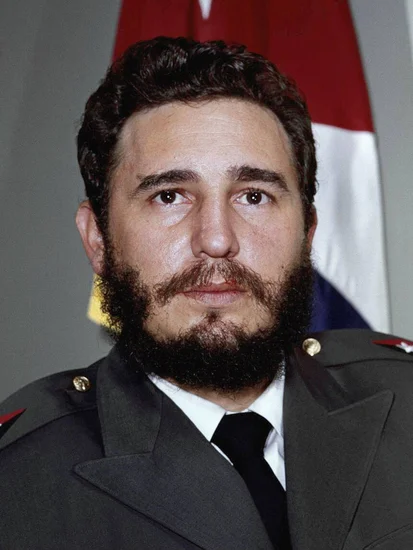
Cuban revolutionary leader Fidel Castro was born, future President of Cuba and influential figure in Cold War politics. His early political activism would shape his lifelong commitment to socialist revolution.
Castro would lead the Cuban Revolution that overthrew the Batista regime in 1959. His leadership of Cuba for nearly five decades made him one of the most controversial and influential leaders of the 20th century.
1904 – Buddy Rogers Born
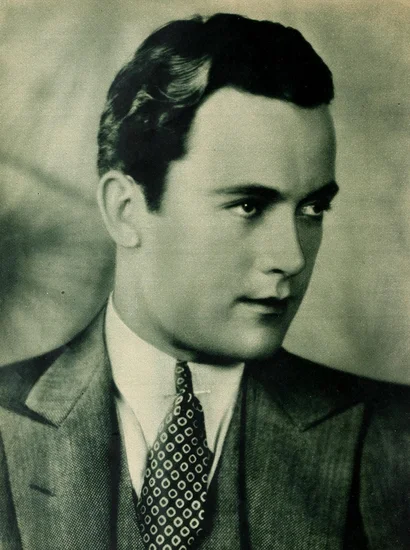
American actor and musician Buddy Rogers was born, future silent film star and Hollywood leading man. His musical talents and acting ability would make him one of early cinema’s most popular performers.
Rogers would gain fame as “America’s Boyfriend” during the silent film era. His marriage to actress Mary Pickford created one of Hollywood’s first celebrity power couples.
1961 – John Slattery Born

American actor John Slattery was born, future television star best known for his role in “Mad Men.” His sophisticated screen presence would make him a standout performer in prestige television.
Slattery’s portrayal of Roger Sterling earned him multiple Emmy nominations and critical acclaim. His work as both actor and director established him as a major talent in contemporary television.
1982 – Sebastian Stan Born

Romanian-American actor Sebastian Stan was born, future Marvel Cinematic Universe star and versatile performer. His early training in classical theater would prepare him for diverse acting roles.
Stan would gain worldwide recognition playing Bucky Barnes in multiple Marvel films. His ability to portray complex characters made him one of the most sought-after actors of his generation.
1961 – Tom Perrotta Born

American novelist and screenwriter Tom Perrotta was born, future acclaimed author of contemporary fiction. His keen observations of suburban American life would define his literary career.
Perrotta’s novels would be adapted into successful films and television series including “Little Children” and “The Leftovers.” His writing captures the complexities of modern American family life with humor and insight.
Notable Deaths on August 13
1910 – Florence Nightingale Dies

Florence Nightingale, the legendary “Lady with the Lamp,” died at age 90 after revolutionizing nursing and hospital sanitation. Her pioneering work during the Crimean War established modern nursing as a respected profession.
Nightingale’s statistical analysis of mortality rates led to dramatic improvements in hospital conditions worldwide. Her legacy transformed healthcare and established nursing education as a formal discipline.
1946 – H.G. Wells Dies

English author H.G. Wells died, leaving behind a legacy as one of the fathers of science fiction literature. His visionary novels anticipated many technological developments that would later become reality.
Wells’ works including “The Time Machine” and “The War of the Worlds” fundamentally shaped the science fiction genre. His ability to combine scientific speculation with compelling storytelling influenced countless writers and filmmakers.
1995 – Mickey Mantle Dies

Baseball legend Mickey Mantle died at age 63, ending the life of one of America’s greatest sports heroes. His powerful hitting from both sides of the plate made him one of baseball’s most feared sluggers.
Mantle’s career with the New York Yankees included seven World Series championships and three MVP awards. Despite battling injuries throughout his career, he remained one of the most beloved figures in baseball history.
2004 – Julia Child Dies

Celebrity chef Julia Child died at age 91, leaving behind a transformed American culinary landscape. Her cookbook “Mastering the Art of French Cooking” introduced sophisticated cuisine to home cooks across America.
Child’s television career made her the first celebrity chef, inspiring generations of cooking enthusiasts. Her fearless approach to cooking and infectious enthusiasm helped elevate American food culture.
2007 – Phil Rizzuto Dies
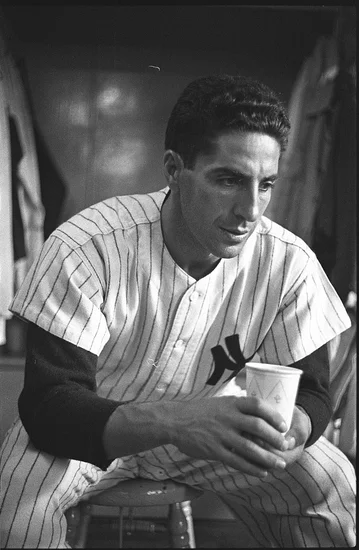
Baseball Hall of Fame shortstop Phil Rizzuto died at age 89, ending the life of a Yankees legend. His defensive excellence and clutch hitting helped the Yankees win seven World Series championships.
Rizzuto’s broadcasting career with the Yankees lasted nearly four decades after his playing days ended. His colorful commentary and signature “Holy Cow!” exclamation made him beloved by multiple generations of fans.
Holidays and Observances on August 13
Independence Day in Central African Republic
The Central African Republic celebrates its Independence Day, commemorating liberation from French colonial rule in 1960. Citizens participate in parades and cultural events honoring their national sovereignty.
The holiday features traditional music, dance performances, and displays of national pride throughout the country. Government officials deliver speeches reflecting on the nation’s progress since achieving independence.
International Lefthanders Day

International Lefthanders Day raises awareness about the challenges faced by left-handed people in a right-handed world. The observance celebrates the unique perspectives and contributions of left-handed individuals.
Organizations worldwide promote understanding of left-handed needs in education, workplace design, and product development. The day encourages recognition of the creativity and different thinking styles associated with left-handedness.
World Organ Donation Day
World Organ Donation Day promotes awareness about the critical need for organ donors worldwide. Medical organizations use this day to educate the public about organ donation procedures and benefits.
The observance honors both organ donors and recipients while encouraging more people to register as donors. Healthcare professionals share statistics about lives saved through organ transplantation programs.
Christian Feast Days
The Christian calendar observes multiple feast days including Saint Hippolytus of Rome, Saint Maximus the Confessor, and other significant religious figures. Churches worldwide commemorate these saints’ contributions to Christian faith and theology.
Religious services include special prayers and readings honoring the saints’ lives and teachings. Many Christian communities organize charitable activities and spiritual reflection events on these feast days.
